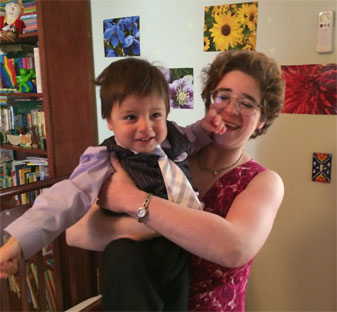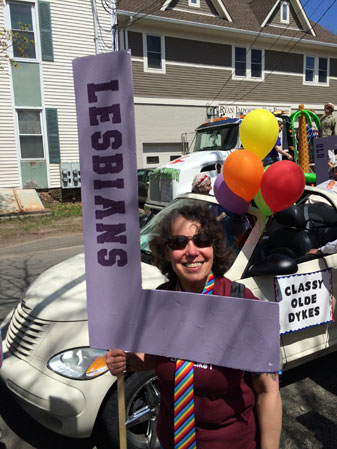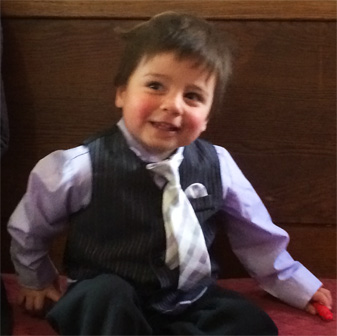Their vision for social change is both radical and humble. Radical, because they want to be used by the Spirit to attack systemic injustice. They’re not content to provide palliative care to the less fortunate, or as they prefer to say, “the under-resourced”. Humble, because they try to operate on God’s timetable, not their own, and eschew ambitious arms’-length initiatives in favor of intensive long-term relationships with a few needy individuals at a time. The combination reminds me of Partners in Health.
The topic of this year’s conference was criminal justice reform. Mass incarceration (mostly of poor people of color) due to the War on Drugs, and the legal disabilities placed on ex-offenders, have created a permanent under-class with few opportunities to re-enter society. People with a criminal record, or sometimes even an arrest record, can be legally discriminated against in housing and employment. They’re ineligible for most professional licenses, both white-collar and skilled trades. Essential federal benefits, including food stamps and public housing, are unavailable to them and their families. In many states, they have no right to vote. Barred from the legal economy, many ex-offenders predictably return to prison. (Look for a future blog post about Michelle Alexander’s devastating book The New Jim Crow: Mass Incarceration in the Age of Colorblindness, which was a foundational text for our conference.)
Becoming Church is working toward an ideal of 0% recidivism. They acknowledge that not every “returning citizen” will choose to turn his or her life around. But that doesn’t diminish our collective responsibility to remove every obstacle to their re-integration into the community.
Becoming Church has adopted a multi-pronged approach of prayer, activism, and social service. Their latest activist project involves buying stock in the largest private prison companies and speaking out at shareholder meetings. The small church groups in DC and Baltimore that spearheaded the conference operate “Strength to Love” halfway houses for returning citizens. These houses offer a structured and sober environment, skills training, spiritual support groups, and community gardens where residents can grow and sell fresh produce. We held our Sunday morning worship service in one such house in Anacostia.
You can find out more about their criminal justice reform work (donate! volunteer!) at their spin-off website, Why We Can’t Wait.
For the remainder of this post, I want to reflect on some striking differences between the Church of the Saviour model (as I briefly experienced it) and the mainline churches I usually attend.
Spiritual Growth, Not Church Growth
When a Church of the Saviour community grows beyond a dozen people, they’re supposed to split off. The accountability and support relationships among members are so intensive that it would be unwieldy to build that kind of trust in a larger group.
Contrast that to the endless bragging or hand-wringing about membership numbers in traditional churches and denominations. Our churches keep score by the numbers. We treat growth as a verdict on the rightness of our theology or political views, relative to other churches that are shrinking. Or we let ourselves be led by economic imperatives to fill the pews so that we can maintain our buildings and staff.
The Church of the Saviour groups do own a number of properties, but as I understand it, these are mainly for the benefit of the community, not worship spaces. Examples include a hospice care house for homeless people, an arts center for youth, the Strength to Love houses, and several small apartment buildings for low-income tenants. In most cases, each service project is spun off as a separate 501(c)(3) nonprofit.
The needs of the neighborhood drive the church groups’ ownership and use of real estate. The property is a resource for the neighbors, whether or not they attend church. By comparison, a traditional church has its own property which needs financial infusions, and invites neighbors to join so they can contribute to it. (Yes, I’m being cynical, I know we also want to spread the gospel, but the structure of the institution tells a different story.)
Inner Work Comes First
For Church of the Saviour communities, personal spiritual formation is the foundation on which the social gospel is built. Members help each other remain emotionally honest and open to God’s presence. Like a writing workshop or a Weight Watchers group, they bolster each other’s commitments to the spiritual disciplines (prayer, meditation, journaling, tithing) that might otherwise go the way of so many New Year’s resolutions.
This is because they understand that God does the work of transforming the world, not us. We’re just the “donkeys” who devotedly carry our little piece of the great burden.
Now, I’ve only spent three days with these folks, so I can’t say whether they’d start piling on the “shoulds” during a more long-term relationship. I can only observe that I never once felt burnt-out, pressured, guilt-tripped, or commanded to serve others in a particular way. Instead, during the support group check-ins and prayer times, the facilitators constantly invited us to share what the Spirit was doing in our lives. We were given opportunities to be educated about social problems, and encouraged with detailed case studies of successful outreach. Then it was up to us to discern our personal path to discipleship.
On several occasions, one of the conference leaders proposed that Christians are not spiritually prepared for the work we have to do. We haven’t taken stock of the sacrifices and suffering that might come our way when we stand up for justice. We aren’t sufficiently plugged-in to God’s love to be able to respond with compassion and equanimity when wrongdoers lash out at us. Our first priority must be knowing Jesus in our hearts.
By comparison, the liberal church frequently preaches Jesus as the supreme giver of homework assignments. We’re told that we should tackle huge structural injustices through individual good deeds (some of which, to me, sound strategically ineffective as well as inadequate) because “Jesus cared about the poor”. We don’t hear nearly enough about spiritual practices that would replenish our strength, ways of reconnecting to God’s love and getting support from our church family.
Church of the Saviour appears to understand that superhuman challenges require superhuman assistance.
I’m Not Okay, You’re Not Okay, but Maybe We’re Okay
Friends who’ve been through 12-Step programs have quoted these wise maxims to me: “You’re only as sick as your secrets” and “Don’t compare your insides to somebody else’s outsides”. I didn’t hear these exact phrases at Becoming Church, but these principles inform their accountability practices.
Church of the Saviour was conceived as a community of racial and economic reconciliation. Participants undertake to let go of the status markers that keep us separated from one another. Money can
easily become an enabler of ego-defenses and falseness. It makes us feel superior or simply allows us to hide dysfunctional aspects of our private lives.
Therefore, Church of the Saviour offers a more intensive membership track (in addition to spiritual support groups) where you make your financial statements transparent to the group, and accept guidance from them about developing a spiritually balanced relationship to money. Members also hold each other accountable for sticking to regular prayer practices, and try to keep each other on track in their personal lives, such as guiding a married couple through a rough patch. Members choose annually whether to renew their commitment to this intensive track. There’s supposed to be no judgment attached to the decision either way. It’s my understanding that they can still remain in the small group.
This is the part of Church of the Saviour that I have mixed feelings about. I don’t think I would adopt this model for my future Christian community for trauma survivors. People with my kind of history have been trained to submit to others’ judgments instead of developing our own sense of right and wrong. We are hyper-sensitive to emotional cross-currents in social situations, and can have trouble hearing our inner voice over the noise of others’ expectations. Reclaiming our privacy is a big part of our healing. This ties into a larger problem with Christianity–assuming that everyone’s main problem is taming an inflated ego rather than rebuilding a crushed spirit. (Or both at once, since parts of the self typically become inflated to protect other vulnerable parts.)
Based on some remarks from the conference, the accountability program seems based on notions of “objectivity” and self-suspicion that are quite mainstream in traditional Christianity, but that I have come to reject. Participants expressed the view that left to her own devices, the individual will be selfishly biased in her own favor, but her fellow group members have no motive to misjudge her.
In my experience, this is not true. Bias against a particular person isn’t the only obstacle. Most of the time, we have trouble even seeing that person through the fog of our own projections and pre-existing opinions. I mean, that’s what racism is, right? I don’t want to have negative stereotypes of African-Americans, I don’t hold that as an ideology, I try to overcome racist beliefs when I notice them, but I probably still make a lot of subconscious assumptions about people based on their looks and cultural markers.
My false diagnosis by adoption clinicians currently has more traumatic charge than memories of my abusive childhood. I don’t take the latter so personally, since I thoroughly understand the suffering that clouds my mother’s mind, but part of me is still tempted to internalize the former, because I can only speculate what (other than my “objective” presentation) made them see me as so repellent and damaged. The belief that they had “no reason to be biased” seriously messed with my head for years.
On the other hand, the companionship of two dozen grateful, devout, and grounded people inspired me to envision a time when my options would be less constrained by my trauma history. I had moments when I was able to perceive that God’s power was so much greater than the power of the people who hurt me. I still think I’m too much of a loner introvert to join this kind of group, for the same reason that I don’t usually join writing workshops, but I wouldn’t be motivated by fear anymore. And I can imagine that an accountability group with good boundaries might be an interesting opportunity for some survivors to face their fear of intimacy.
Church of the Saviour has a refreshing humility about, and lack of attachment to, any specific institutional format. Their attitude (in theory, at least) is “this seems to be working right now, but go ahead and change it as needed”. I’m really grateful to these folks for helping me open my heart and mind to new possibilities.



